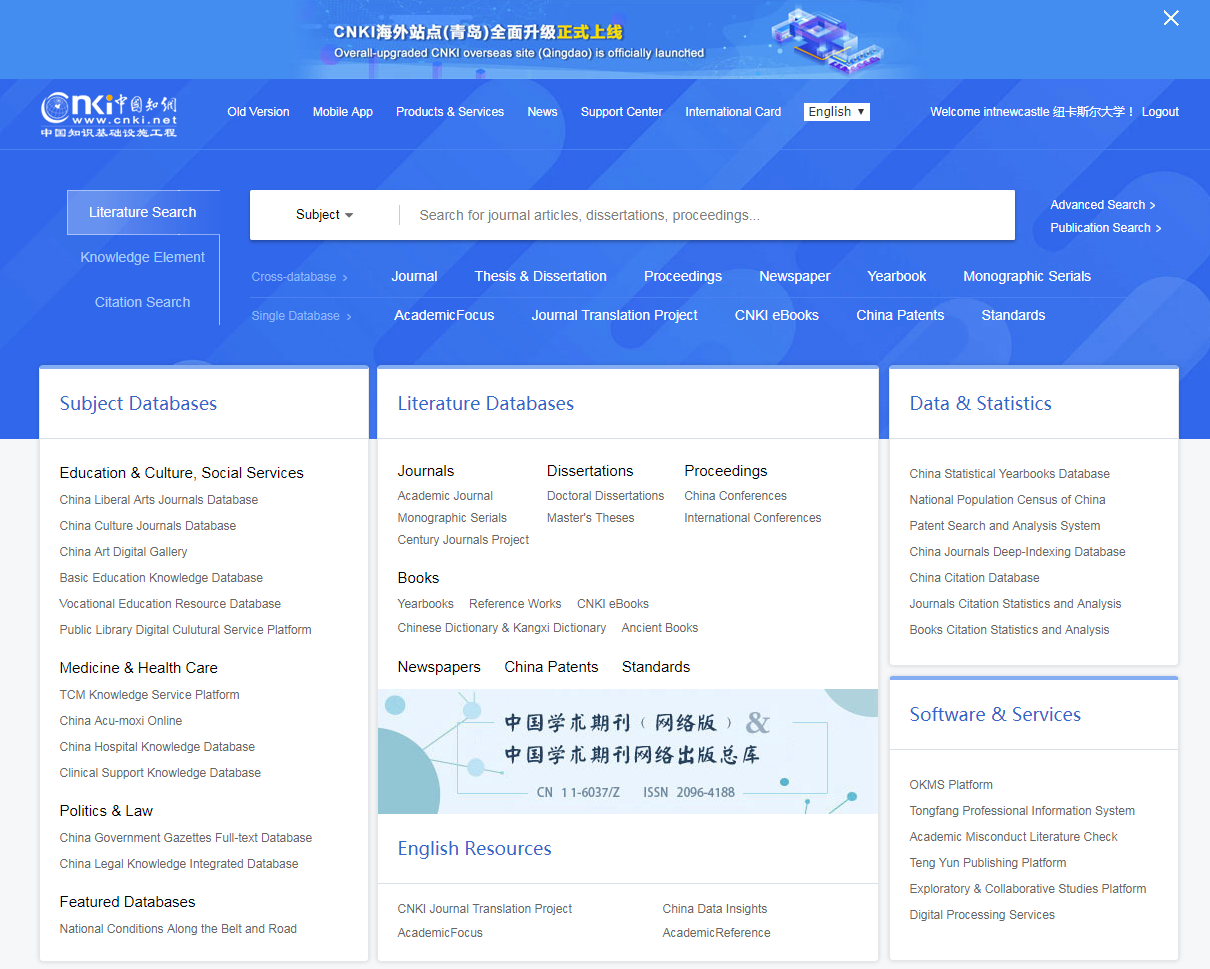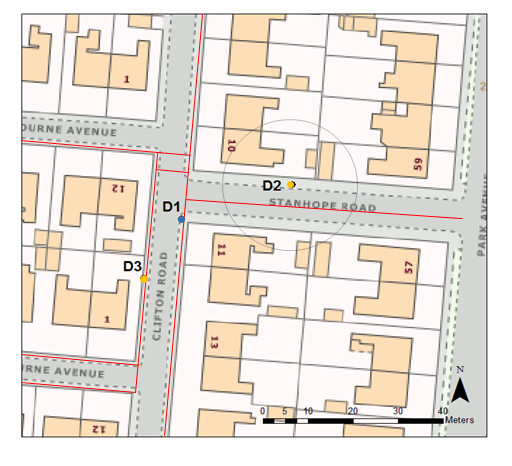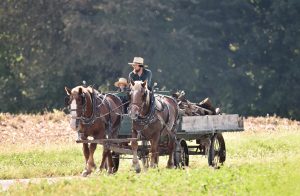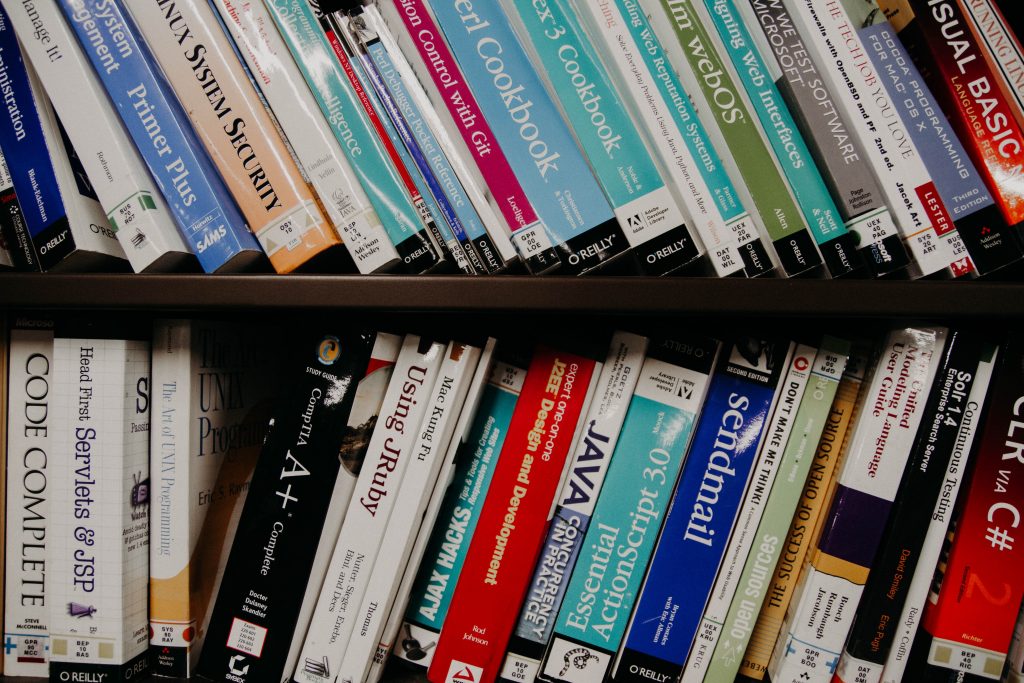Do you use CNKI and China Academic Journals? The resource has a new look for the New Year!
CNKI still offers access to journals, theses, proceedings, newspapers and yearbooks on a wide range of subjects – literature, history, philosophy, politics, military affairs, law, education & social sciences, electronic technology & information science, economics & management – but is now even easier to use.
Access CKNI from our Chinese and Japanese Studies Subject Guide. Once you have logged in, click on the New Homepage button (top left-hand corner of the screen) to go to the new interface which makes searching this vast resource easy.
N.B. If you really do prefer the old version, you can still access this for 6 months (until the end of June 2019). Just click on ‘Old Version’ in the menu at the top of the screen.
















